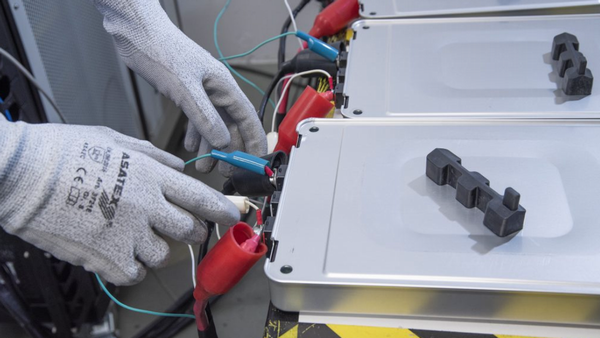There can be no sustainable value chain when we haven't had new batteries in 30 years. Unfortunately, as long as mandates and subsidies are in effect, there is no incentive to create better technology, which means the only hope is to reuse old, inefficient batteries in order to mitigate the high social and environmental toll electric cars extract now.
Groups such as the World Economic Forum and Environmental Coalition of Standards know it is a problem but won't tell governments to stop mandating old solutions that are worsening the problem and creating a “Pyrrhic victory” - cutting CO2 emissions by creating obscene levels of toxic waste.
How green our batteries aren't
The Global Batteries Alliance wants to help establish a sustainable battery value chain - while representing all of the companies profiting from the status quo. Batteries create high pollution and high energy consumption, they need rare earth elements like lithium, cobalt, and nickel that depend on depletion mining in third world countries such as Myanmar, leaving behind the kind of toxic water not seen in richer nations since the 1950s.

The energy to produce these legacy 20th century batteries is high but nowhere near as high as trying to recycle materials from them - which is why western governments pay lip service to environmentalism while ignoring the impacts of cobalt mining. The EU has cobalt on its “critical raw materials” list and are reliant on the Democratic Republic of Congo for 70 percent of it, while demanding that electric cars increase 400 percent by 2030.
Nearly all of it comes from unregulated mines without respect for human rights or child labor. European politicians dismiss it with sovereign nation rhetoric while EU citizens pretend not to know. The problem is not going away.
Some groups hope to repurpose old batteries from electric vehicles and create microgrids to try and store electricity from solar panels. These batteries are no longer good enough for cars, few want to watch their battery levels drop rapidly on a short drive to work, and so far one government building in Spain has tried the experiment; a police building in Pamplona whose car park is used by the municipality’s e-cars but when vacant can be used as additional energy storage. Using a simple algorithm, it calculates the best possible configuration every hour and manages the system accordingly, taking into account fluctuating electricity prices. When the software sees high demand elsewhere, it lowers consumption for less important cars and supplies the grid with solar energy.
They found they could cut energy costs by up to 30 percent, though one qualifier is that their old car batteries performed better than expected. Yet if the batteries can last 10 more years, they can provide stability and flexibility to solar installations that are neither. Hopefully in that time governments will stop subsidizing old technology and fund basic research into next generation batteries.






Comments